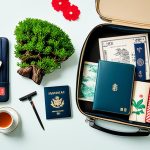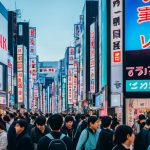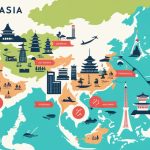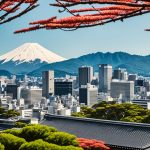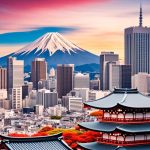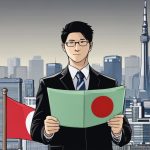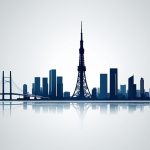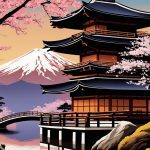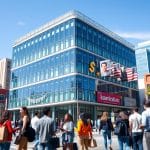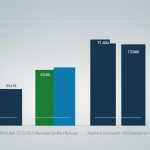Welcome to our comprehensive guide comparing the living and work experiences in Japan and the USA. If you’re considering a move to either country or simply curious about the differences, this article will provide valuable insights into the unique aspects of each nation.
Whether you’re interested in exploring the vibrant cities of Japan or the bustling streets of the USA, we’ll delve into various factors such as cost of living, employment opportunities, work culture, education, healthcare, and lifestyle. By the end of this article, you’ll have a better understanding of what to expect in both countries.
To help you visualize the differences and similarities, we’ve included relevant images throughout the article. Take a moment to absorb the visual representations and immerse yourself in the diverse landscapes of Japan and the USA.
So, let’s dive in and explore the intricacies of living and working in Japan and the USA. Whether you’re thinking about relocating for work or planning a long-term stay, this guide will provide you with the information you need to make informed decisions.
Cost of living
When considering a move to another country, understanding the cost of living is crucial. In this section, we will compare the cost of living in Japan and the USA, providing insights into the financial aspects of living in each place.
Accommodation Expenses
One of the key factors that contribute to the cost of living is accommodation. Both Japan and the USA offer a range of options, from rental apartments to buying houses. However, it’s important to note that the average cost of housing tends to be higher in the USA compared to Japan.
Transportation Costs
Transportation expenses can vary significantly between Japan and the USA. While Japan has an extensive and efficient public transportation system, the cost of commuting within the major cities can be relatively higher compared to the USA. In contrast, owning a car in the USA may be more common, but fuel and maintenance costs should be factored in.
Grocery and Food Expenses
When it comes to groceries and food, the cost of living can differ between Japan and the USA. While Japan is known for its high-quality but relatively expensive produce, eating out in restaurants can be more affordable. On the other hand, the USA offers a wide range of food choices, with varying prices depending on the location.
Healthcare Costs
Healthcare expenses are also significant factors to consider. Japan’s healthcare system is renowned for its efficiency and affordable healthcare coverage, while the healthcare costs in the USA can be considerably higher. Understanding the healthcare systems and insurance options in both countries is essential for financial planning.
By comparing these factors, individuals can gain a better understanding of the cost of living in Japan and the USA. It is important to note that the overall cost of living may vary depending on individual lifestyles, location within each country, and personal preferences.
Let’s move on to section 3, where we will explore the employment opportunities in Japan and the USA.
Employment opportunities
When considering a move to either Japan or the USA, it’s important to have a clear understanding of the employment opportunities in each country. Both Japan and the USA offer unique prospects for individuals seeking to advance their careers and explore new horizons.
In Japan, the job market is known for its stability and strong emphasis on long-term employment. Many multinational corporations have established a presence in Japan, creating a diverse range of employment opportunities in sectors such as technology, automotive, finance, and manufacturing. Additionally, Japan’s strong focus on innovation and research and development makes it an attractive destination for professionals in these fields.
The USA, on the other hand, is renowned for its dynamic and entrepreneurial business environment. With a thriving startup culture and a diverse range of industries, including technology, finance, entertainment, and healthcare, the country offers a vast array of career options. The USA also attracts global talent through its leading universities and research institutions, providing numerous opportunities for individuals to pursue their professional aspirations.
It’s important to note that while both Japan and the USA offer employment opportunities, there are differences in the approach to work visas. In Japan, individuals wishing to work must obtain an appropriate work visa, which can be sponsored by a Japanese company. In the USA, various work visas are available, such as H-1B visas for specialized workers or L-1 visas for intracompany transferees. Understanding the visa requirements and processes is essential when considering employment opportunities in either country.
Key points:
- Japan offers stability and long-term employment opportunities, particularly in sectors like technology, automotive, finance, and manufacturing.
- The USA provides a dynamic and entrepreneurial business environment with a wide range of industries, including technology, finance, entertainment, and healthcare.
- Visa requirements differ between Japan and the USA, so it’s important to understand the processes and regulations when seeking employment opportunities.
Work culture
When comparing work culture in Japan and the USA, it becomes evident that both countries have distinct approaches to the professional environment. Understanding these differences can help individuals navigate workplace dynamics more effectively in each country.
In Japan, work culture is deeply ingrained with a strong emphasis on loyalty, hierarchical structures, and collective harmony. Employees often prioritize long working hours and dedication to the organization. The concept of “work-life balance” is less emphasized, and there is a cultural expectation of overtime and often unpaid work. Despite these demands, Japan’s strong work ethic has contributed to its economic success and productivity.
The USA, on the other hand, embraces a work culture that values individualism, flexibility, and results-driven performance. American companies promote a more egalitarian environment where open communication, collaboration, and innovation are encouraged. Work-life balance is highly regarded, and employees are encouraged to prioritize their personal lives alongside their professional commitments.
Communication styles also differ in these two countries. In Japan, there is a greater emphasis on indirect communication, respect for authority, and maintaining “wa” (harmony) within the workplace. On the contrary, the USA favors direct and assertive communication, encouraging employees to express their opinions openly and honestly.
Business etiquette is another aspect that varies between Japan and the USA. In Japan, hierarchical relationships are respected, and proper etiquette, such as bowing and exchanging business cards, plays a crucial role in establishing professional connections. In the USA, business etiquette is less formal, with handshakes and exchanging business cards being common practices.
Education and healthcare
When considering a move to a new country, two essential aspects of life that should not be overlooked are education and healthcare. Understanding the education and healthcare systems in Japan and the USA can greatly impact the decision-making process for individuals or families planning to relocate.
In Japan, education is highly valued, and the country boasts a well-regarded education system. Students in Japan typically experience a rigorous curriculum and have a strong focus on academics. The country is known for its high-quality schools and universities, producing graduates who are often in high demand in the job market.
The healthcare system in Japan is recognized for its efficiency and accessibility. The country has a universal healthcare system, meaning that all residents have access to healthcare services. The Japanese healthcare system is known for its advanced technology, well-trained medical professionals, and low waiting times for specialized treatments.
On the other hand, the United States offers a diverse range of education opportunities. The country is home to prestigious universities and academic institutions that attract students from all over the world. The U.S. education system emphasizes critical thinking, creativity, and innovation, and provides students with a wide variety of academic and extracurricular options.
When it comes to healthcare, the United States has a complex system that is often characterized by high costs. While the country has some of the best medical facilities and research institutions globally, access to healthcare services can be a challenge for some individuals. The cost of healthcare, including insurance premiums and out-of-pocket expenses, can be a significant consideration for those planning to move to the United States.
Ultimately, the education and healthcare systems in both Japan and the USA have their strengths and limitations. It is important for individuals and families to thoroughly research and consider these factors when making a decision about where to settle, taking into account their own personal needs and priorities.
Lifestyle and cultural differences
When it comes to lifestyle and cultural differences, Japan and the USA offer distinct experiences that reflect their unique traditions, social norms, and leisure activities.
In Japan, traditions and social customs play a significant role in everyday life. From the tea ceremony to wearing traditional clothing like kimonos, the Japanese value their rich cultural heritage. Respect for elders and collective harmony are deeply ingrained in society, shaping social interactions and relationships. Additionally, Japan’s emphasis on cleanliness and orderliness creates a sense of discipline that permeates daily routines.
On the other hand, the USA is known for its diversity and individualism. With people from different backgrounds and cultures, the American lifestyle is characterized by a melting pot of traditions and customs. From Fourth of July celebrations to sporting events and music festivals, Americans embrace a wide range of leisure activities. The pursuit of personal freedom and self-expression is highly cherished, reflecting in the way people dress, the food they eat, and their choices in entertainment.
These lifestyle and cultural differences between Japan and the USA offer individuals the opportunity to explore new perspectives and broaden their horizons. While Japan provides a chance to immerse oneself in ancient traditions and experience disciplined routines, the USA offers a vibrant and diverse society that promotes individuality and freedom.




